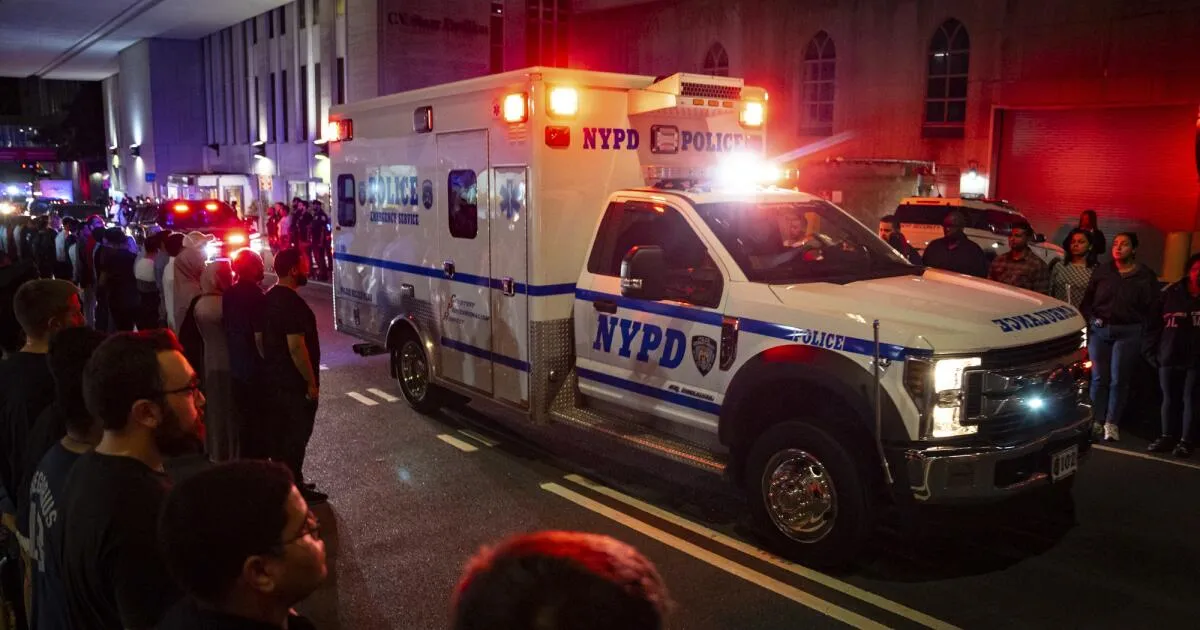
The gunman suspected of targeting the National Football League (NFL) headquarters in New York, resulting in the tragic deaths of four individuals, has been identified as Shane Tamura, a 27-year-old former high school football player. Tamura played for two Southern California high schools: Golden Valley High School in Santa Clarita and Granada Hills Charter School in the San Fernando Valley. His connection to football and the subsequent violent incident has shocked both communities.
Shane Tamura was a prominent varsity high school football player at Golden Valley High School for three years before transferring to Granada Hills Charter School for his senior year in 2015. Despite his skills on the field, Tamura never progressed to play in the NFL. During his senior season at Granada Hills, Tamura stood out with 126 carries, accumulating 600 rushing yards and scoring five touchdowns, as reported by MaxPreps. His performance earned him several “player of the game” awards, highlighting his capabilities as a dedicated athlete.
Dan Kelley, Tamura's coach at Golden Valley, described him as “a good athlete,” noting his potential in a 2015 interview. Walter Roby, his coach at Granada Hills, expressed his disbelief at the recent events, stating, “Shane was very quiet. He was a quiet, hard worker. He was coachable. Whatever we asked him to do, he did it.” Roby lamented his inability to foresee the tragic outcome, pondering, “Could I have done more? Could I have helped the kid?”
According to New York Mayor Eric Adams, Tamura appeared to harbor a grievance against the NFL, though he mistakenly ended up on the wrong floor of the building housing the league's headquarters. Initial investigations revealed that Tamura traveled from Las Vegas to New York, driving a black BMW across the country. Upon investigation of the vehicle, law enforcement officials discovered a rifle case, loaded revolver, ammunition, and a backpack containing medication prescribed to Tamura. Importantly, no explosives were found in the vehicle.
The news of the mass shooting has left many in shock, including Tamura's former teammate, Anthony Michael Leon, who described him as someone who “never exerted bad energy or a negative attitude.” Leon acknowledged Tamura's quiet demeanor, stating, “When he did actually talk, people listened.” This unexpected turn of events raises questions about the mental health challenges faced by many individuals.
In recent years, Shane Tamura resided in Nevada, where he worked as a security guard at the Horseshoe Las Vegas hotel and casino. Reports indicate that Tamura had a documented mental health history. New York City Police Commissioner Jessica Tisch confirmed this information, noting that the investigation is ongoing to uncover Tamura's motives for targeting the NFL headquarters. Sources familiar with the investigation revealed that Tamura possessed a suicide note alleging he suffered from chronic traumatic encephalopathy (CTE), a brain disease associated with repeated head trauma.
The three-page handwritten note, found in Tamura's wallet, reportedly blamed football for his mental struggles. In the note, Tamura referenced former Pittsburgh Steelers player Terry Long, who tragically died by suicide in 2005, and expressed grievances against the NFL. He allegedly wrote, “Football gave me CTE and it caused me to drink a gallon of antifreeze,” and warned against opposing the NFL, claiming, “They’ll squash you.” He pleaded for his brain to be studied, accusing the league of concealing the dangers associated with the sport to maximize profits.
This tragic incident raises critical questions about athlete safety, mental health, and the responsibilities of sports organizations in addressing these issues. The community continues to mourn the loss of life while seeking answers in the wake of this devastating event.